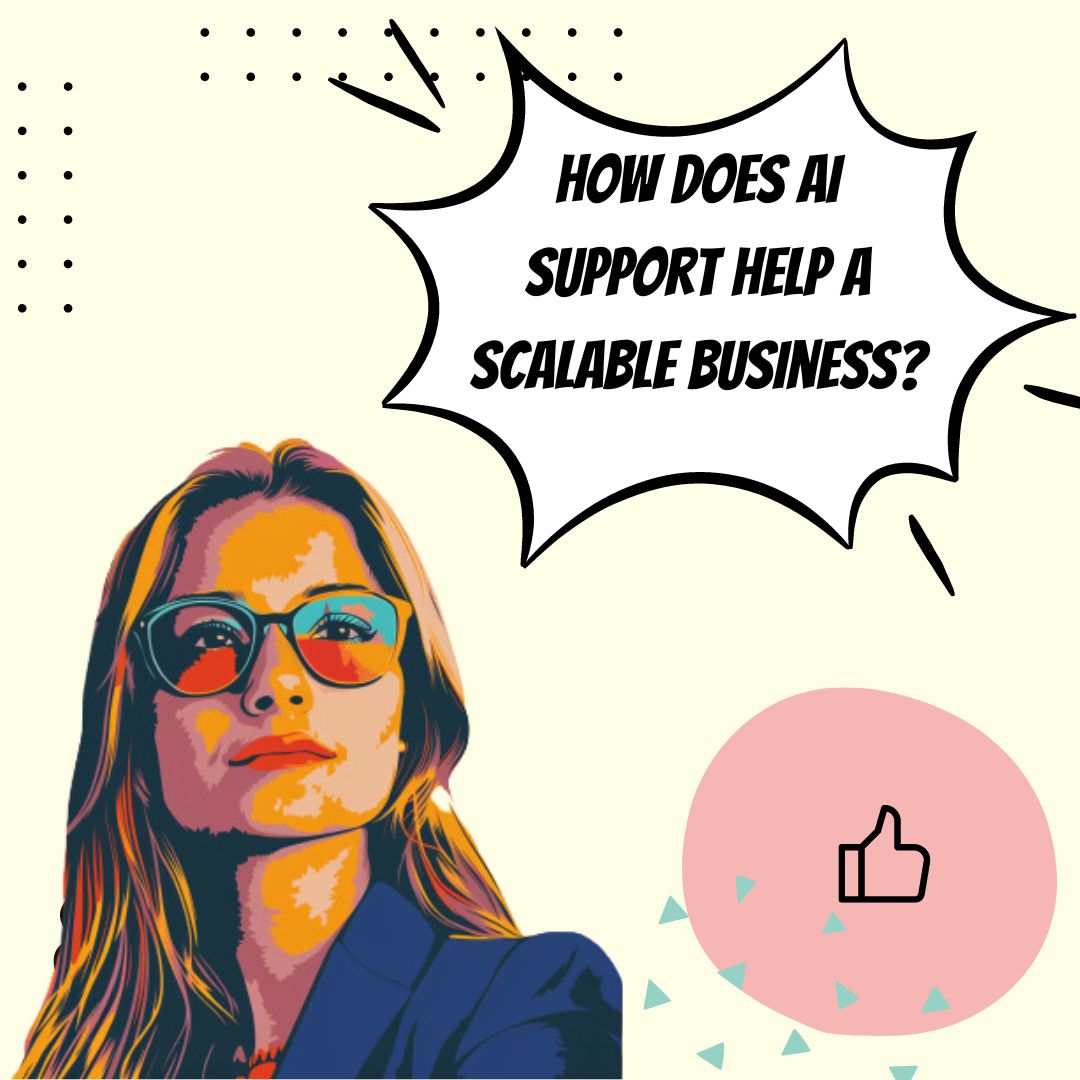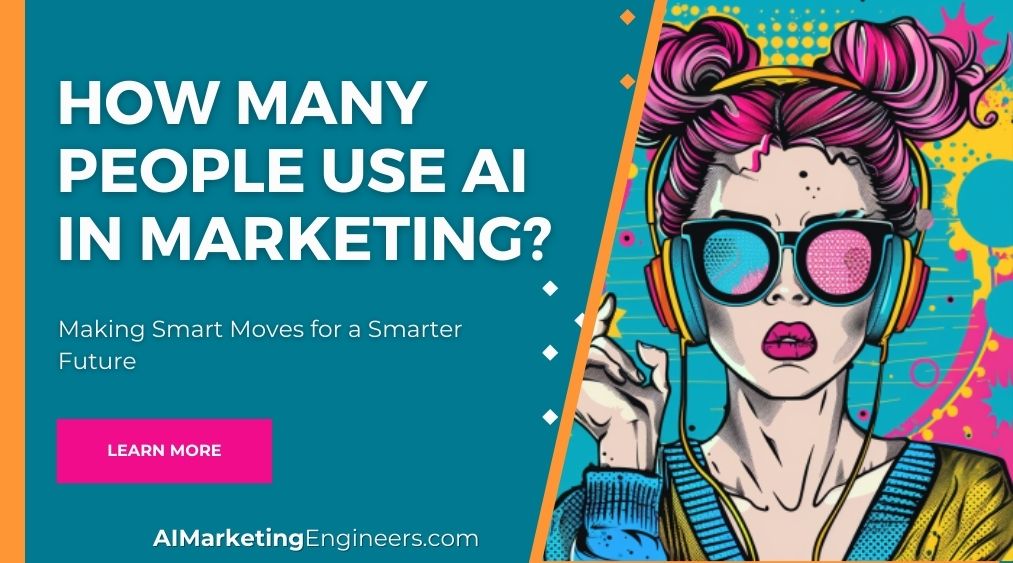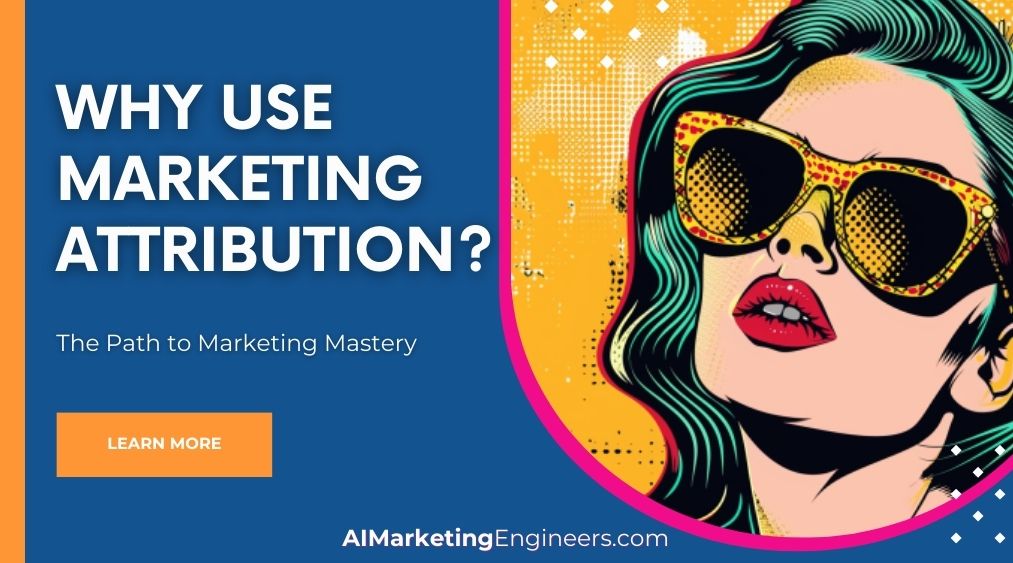Key Takeaways
✅ Strategic AI Integration: Embracing AI isn't just about the tech; it's a mindset. It's pinpointing those golden spots in your operations where AI doesn't just fit; it transforms. Think of boosting efficiency, making smarter decisions, sparking innovation—it's all about the big impact for less hustle.
✅ Data Management and Analytics: Fancy AI tools are only as good as the data they munch on. Get your data house in order—crystal clear and easy to reach. Investing in top-notch data analysis means catching the trends as they rise and riding them all the way to bank.
✅ Continuous Learning and Adaptation: Staying ahead in the game isn't a one-off. It's about keeping your ears to the ground for the latest AI whispers and schooling your team to roll with the punches. Adaptability is your new best friend in this whirlwind tech tango.

Introduction
What if I told you that the secret sauce to supercharging your business growth might just be hidden in the world of AI? We're not just talking about a little bump in productivity or a fancy new process. AI integration is about setting your business on a track that scales upwards, endlessly, without crashing into the limits of traditional growth strategies.
Imagine having all the insights, the processing power, and the futuristic tools at your fingertips. Sounds exciting, right? That's because it is! Building a scalable business isn't just about surviving; it's about thriving, expanding, breaking the mold, and staying light on your feet as the ground shifts beneath you.
In the next sections, you're going to see just how AI can be a game-changer for you. We're not just skimming the surface; we're diving into modern trends and unlocking solutions that pump up your revenue, ROAS, and ROI.
Get ready, because these aren't just insights—these are your new action plans. Stick around and let's unfold these groundbreaking strategies together!
Top Statistics
| Statistic | Insight |
|---|---|
| Global AI Market Growth: Expected to surge from $387.45 billion in 2022 to $1,394.30 billion by 2029, at a CAGR of 20.1%. (Source: Fortune Business Insights, 2022) | The expansion of the AI market is a telltale sign of AI's growing role in business innovation and scalability. Companies that are looking to grow need to consider AI a critical part of their strategy. |
| AI Adoption in Businesses: 86% of companies use AI, and 69% plan to increase AI investment. (Source: Deloitte, 2021) | Think about it - if the vast majority are on board with AI, there must be something to it, right? It emphasizes the importance of staying competitive and future-ready. |
| AI in Customer Service: Market size expected to jump from $3.2 billion in 2020 to $23.9 billion by 2026. (Source: MarketsandMarkets, 2021) | Customer experience is often the battleground for winning loyalty. AI's rocketing growth in this sector reveals the urgency to enhance customer service with technology. |
| AI in Sales and Marketing: AI tools predicted to generate $1.1 trillion by 2021. (Source: Salesforce, 2021) | Sales and marketing are where the money's at - literally. AI is not just a helper; it's a revenue generator and a game changer in targeting and personalization. |
| User Demographics: 48% of AI adopters are large companies, while 31% are SMBs. (Source: Deloitte, 2021) | There's a place for businesses of every size in the AI landscape. If nearly one-third of smaller players are diving in, what's stopping you from taking the plunge? |
Identifying Areas for AI Integration
Ever wondered what parts of your business might be ready for an AI makeover? Here's the thing: not every corner of your operation needs a robot's touch. To get started, you should evaluate your business processes. Look for those repetitive, time-consuming tasks that bog you down daily. Could these be automated? Next, pinpoint where mistakes often happen. Got a spot that's prone to human error? AI could be your new best friend there, making things smoother and more precise. And remember, it's not about jumping on every AI bandwagon. Aim to start with areas where AI can make a noticeable difference—where it can lift your revenues or cut down your costs.
Data Management and Infrastructure
Now, hold on a second. Before you go all in with AI, do you know if your data is up to snuff? AI is a bit like a gourmet chef—the quality of what you put in determines what you get out. So, ensure data quality and accessibility is at the forefront. It’s no good having data scattered everywhere or in a format that AI can't digest. Data's home is just as important. You’ll need a robust data infrastructure and security to keep it safe and sound. And like any good household, rules are key—set strict data governance policies to keep everything in check.
Selecting the Right AI Tools and Technologies
Choosing the right AI tools is like picking the right ingredients for your secret sauce—it can make or break your recipe. It's vital to assess the capabilities of various AI solutions; not all are created equal. What are you trying to fix or improve? Match that with tools that suit your business needs and don't forge ahead without considering customization and integration with existing systems. This makes sure your new AI pals can talk to your old-school software without any hitches.

Building a Strong AI Team
Ever heard the saying 'a team is only as strong as its weakest player'? Well, AI is part of your team now. To make this team work, bring on board AI experts with diverse skill sets. These are the folks who can train your AI, so it's sharp and ready for action. But teamwork makes the dream work, right? So, you'll want a workplace that's buzzing with collaboration and continuous learning. And don't forget to keep skills sharp with training and development opportunities—even for AI!
Ethical Considerations and Transparency
Okay, let's talk about keeping things on the straight and narrow. AI is powerful, but with great power comes great responsibility. Set clear ethical guidelines for AI usage—think of it as drawing a line in the sand about what’s okay and what's not. Transparency is huge; you'll want everyone to understand how AI's making decisions. This isn't just about being open; it’s about building trust. And be vigilant about those pesky biases that can sneak into AI. Make sure those biases don't end up alienating customers or staff.
Continuous Improvement and Iteration
Last but not least, think of AI like a living, breathing thing—it needs to grow and get better. That's why monitoring and measuring AI performance is crucial. You want to know how it's doing and what impact it's having on your business. And since nobody's perfect, gathering feedback from stakeholders and users will give you the scoop on what needs tweaking. AI isn't a one-and-done deal; it's about regular updates and refinements. Keep your AI on its toes, and it’ll keep you ahead of the curve.

AI Marketing Engineers Recommendation
Recommendation 1: Integrate AI to Enhance Customer Service and Experience: Start by weaving AI chatbots and virtual assistants into your customer service framework. This will ensure you're available to your customers 24/7, reducing wait times and increasing satisfaction. Data shows that customers appreciate quick, efficient service: According to Statista, as of 2021, the customer satisfaction rate for AI-powered customer service globally stood at 87.58%. Seeing numbers like that makes you think – if your service could be faster and smarter, wouldn't your customers be more likely to stick around?
Recommendation 2: Employ AI-Driven Analytics for Hyper-Personalization: Dive into the power of AI-driven analytics. By using machine learning algorithms, businesses can analyze vast amounts of data to identify patterns and preferences, leading to hyper-personalized marketing strategies. Think about how you feel when something seems made for you. That's the emotion you want to evoke in your customers. With a report from Epsilon indicating that 80% of consumers are more likely to make a purchase from a brand that provides personalized experiences, can you afford not to embrace this trend?
Recommendation 3: Adopt AI Tools for Scalable Content Creation: Embrace AI-powered content creation tools such as GPT-3 for writing or DALL·E 2 for graphic design. This not only speeds up content production but also allows for scaling up your content marketing efforts without a proportional increase in resources. With every brand vying for attention, memorable and frequent content can be your ace in the hole. Tools that use AI to create engaging and SEO-friendly material could give you the edge you need – they're not just clever, they're cost-effective. After all, Content Marketing Institute found that AI is the technology 53% of content marketers are most likely to incorporate in 2021. If everyone else is getting on the train, maybe it's time to grab your ticket, too?

Relevant Links
Maximize Your Reach: How SEO Will Stay Crucial in 2024
Is SEO Still Relevant in 2024? Find Out Here!
The Future of Shopping: Top Ecommerce Marketing Strategies
Best Marketing Practices for Ecommerce Success
Streamline Your Marketing: Top AI Tools for Cutting-Edge Campaigns
AI Tools Unveiled: The Game-Changers in Marketing
Unlocking AI Potential: ChatGPT for Transformative Marketing Tactics
Revolutionize Your Marketing Strategy with ChatGPT
Conclusion
So, what does it actually take to grow a business with a little help from AI? You've seen the potential it has to transform not just how we do things, but how we can do so much more. Stepping into the world of AI isn't just about the cool, shiny new tools; it's about looking at your business with fresh eyes, finding those spots where AI can make a real difference, and going for it.
Think about where your business might be slowing down, or where your team gets stuck on repeat, doing the same old tasks. Could a smart AI system step in and free up some time? Absolutely. But, remember that it's not just about letting the robots take over – it's about making sure they're doing the right job, with good, clean data, and under the watchful eye of a great team of humans.
Choosing the right tools and the right people to work with those tools is like picking players for a sports team – you want the best fit possible. And when it comes down to playing fair and square, your AI needs to be on the up and up, ethically and transparently.
But don’t just stop once things are up and running. Keep an eye out. How's it going? What's working and what's not? This AI adventure is going to be a journey of continuous learning, tweaking, and growing. And with every improvement, your business gets a little bit stronger, a little bit smarter.
Isn't that the dream? To build a business that doesn't just survive but thrives. To always be two steps ahead, to innovate, and to grow. So, how about it? Are you ready to see where AI can take your business to new heights? Remember, it's not just about being big; it's about being scalable and adaptable. Let's make those dreams a reality, with AI as your trusty sidekick.

FAQs
Question 1: What is a scalable business, and how does AI support contribute to scalability?
Answer: Imagine a business that grows bigger and bigger, but doesn't have to stretch its wallet too thin to handle the growth – that's what we call scalable. AI is like a secret sauce here; it takes care of repetitive tasks, makes things run faster and smarter, and gives you the golden nuggets of wisdom to make the big business decisions.
Question 2: What are the foundational concepts of building a scalable business with AI support?
Answer: It starts with knowing what you want your business to achieve. Then you figure out where AI fits into the picture – where it can really shine. Next up, you weigh the pros and cons of bringing AI into your world, and make sure you've got the tech and data ready for it.
Question 3: What are some advanced topics in building a scalable business with AI support?
Answer: If you're feeling brave and ready to dive deeper, there are things like machine learning, chatting with computers (natural language processing), guessing the future (predictive analytics), and teaching computers to think like us (deep learning).
Question 4: How can AI support improve customer experience in a scalable business?
Answer: AI is like that friend who knows what you want before you even say it. It can suggest products, talk to customers day and night (hello, chatbots!), and keep an eye on trends so you can always be one step ahead.
Question 5: What are some practical considerations for implementing AI in a scalable business?
Answer: You'll need to keep secrets safe (data privacy), find or train some AI whizzes, and sketch out a game plan for how AI will help you hit those business home runs.
Question 6: How can AI support help optimize operations in a scalable business?
Answer: AI is all about keeping the gears running smoothly. It can take over the boring stuff, steer your supply chain with a steady hand, and spot trouble before it happens.
Question 7: What are some common challenges in building a scalable business with AI support?
Answer: It's not all smooth sailing – sometimes the data's all over the place, there aren't enough AI pros to go around, folks might dig their heels in, and the price tag for AI can be pretty hefty.
Question 8: How can AI support drive innovation in a scalable business?
Answer: AI can be your lookout for new opportunities, help make products better, and even open doors to ways of doing business you haven't thought of yet.
Question 9: What are some key takeaways for building a scalable business with AI support?
Answer: Remember what you're aiming for, stack your tech and data chips high, get some AI talent on your team, and have a clear blueprint of how AI's going to help you win.
Question 10: What are some relevant hashtags for building a scalable business with AI support?
Answer: To keep in the loop and share your story, throw around tags like #AIinBusiness, #ScalableBusiness, #AIAutomation, #AIAnalytics, #AIInnovation, and #AIStrategy.

Academic References
- Ransbotham, S., Kiron, D., Gerbert, P., & Reeves, M. (2018). Artificial Intelligence and Business Strategy. California Management Review, 60(3), 5-34. This article underscores the criticality of integrating AI strategy within the broader business strategy, calling for a comprehensive approach that encompasses the entire business value chain and highlights strategic AI implementation as a driver for value creation.
- Davenport, T. H., Ronanki, R., & Singh, R. (2019). Scaling Artificial Intelligence: Infusing AI into Business Processes. MIT Sloan Management Review. This insightful piece delves into the hurdles faced by organizations as they endeavor to scale AI, advocating for the infusion of AI into pre-existing processes and systems as a pragmatic approach to leveraging this transformative technology.
- Brynjolfsson, E., Rock, D., & Syverson, C. (2017). Artificial Intelligence and the Modern Productivity Paradox: A Clash of Expectations and Statistics. NBER Working Paper No. 24001. In this paper, the authors explore the "productivity paradox" of AI, suggesting the existence of a lag between the deployment of AI technologies and the realization of productivity gains, owing to factors such as ancillary investments and organizational restructuring.
- Schwab, K., & Davis, N. (2018). The Artificial Intelligence Imperative: A Practical Roadmap for Business. World Economic Forum. This report acts as a navigational tool for businesses aiming to forge ahead in the AI domain, emphasizing a blended approach that considers both the technological and human components of AI strategy, while promoting ethical standards in AI utilization.
- Davenport, T. H., & Ronanki, R. (2019). The AI Advantage: How to Put the Artificial Intelligence Revolution to Work. MIT Press. The book serves as a hands-on guide for business leaders and practitioners, focusing on how to deploy AI to resolve specific business challenges, construct the necessary support infrastructure, and cultivate an ethos of innovation and agile experimentation.







